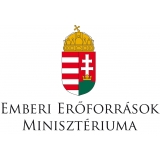Main Sponsors
-
 Reiso Pécs
Reiso Pécs -
 Hotel Lycium****
Hotel Lycium**** -
 Pécs ZOO
Pécs ZOO -
 http://www.mecsekegyesulet.hu/
http://www.mecsekegyesulet.hu/ -
Doro Ékszer
-
 Hetényi Pincészet
Hetényi Pincészet -
 Zsályaliget Élménypark
Zsályaliget Élménypark -
 Fabrik Barkács Szaküzlet
Fabrik Barkács Szaküzlet -
 Katica tanya
Katica tanya -
 E.ON Hungary
E.ON Hungary -
 http://www.ipark-pecs.hu/
http://www.ipark-pecs.hu/ -
 https://www.otpbank.hu/otpklub/Fooldal
https://www.otpbank.hu/otpklub/Fooldal -
 http://www.pecsibalett.hu/hindex.html
http://www.pecsibalett.hu/hindex.html -
 www.lakics.hu
www.lakics.hu -
 Gépszer
Gépszer -
 http://www.kormany.hu/hu/emberi-eroforrasok-miniszteriuma
http://www.kormany.hu/hu/emberi-eroforrasok-miniszteriuma -
 http://www.pnsz.hu/
http://www.pnsz.hu/ -
 http://www.pecs.hu/
http://www.pecs.hu/ -
 Mischl Autóház
Mischl Autóház -
 Öko-Trade Ltd
Öko-Trade Ltd -
 Bóly and Vicinity Savings Bank
Bóly and Vicinity Savings Bank -
 Mecsekerdő Forestry Ltd
Mecsekerdő Forestry Ltd -
 http://www.deltakarek.hu/
http://www.deltakarek.hu/ -
 University of Pécs
University of Pécs -
 http://kloe.hu/
http://kloe.hu/ -
 http://www.lafarge.hu/
http://www.lafarge.hu/ -
 http://www.gondoldo.hu/
http://www.gondoldo.hu/


The Béla Bartók Male Choir is 70
8 Nov 2015. 19:00 | Kodály Centre
For Grown-Ups |
- Luigi Cherubini: Requiem in D Minor - extracts
- Erkel Ferenc: Bánk Bán - Hazám, hazám / Motherland
- Giuseppe Verdi: Rigoletto - La donna è mobile - the Prince's aria
- Francis Poulenc: Quatre petites prières de Saint François d'Assise
- Morten Lauridsen:
- Balatoni Sándor: Cantate Domino
- Orbán György: Daemon irrepit callidus
- Felix Mendelssohn-Bartholdy: Beati mortui
- Anton Bruckner: Inveni David
- Kodály Zoltán: "Hej Büngözsdi Bandi"
- Kodály Zoltán: God's Wonder
- Bartók Béla: Four Old Hungarian Folksongs
- Kálmán Imre:
- Giuseppe Verdi: The Troubadour – Gipsy Chorus
- Huszka Jenő:
Programme
Orchestra
Symphonietta of PécsConductor
Lakner Tamás Horváth Krisztián,
Soloist
Szabolcs Csajághy
tenor

István Horváth
tenor
Szabolcs Bognár
The King's Herald
Vivat Bacchus Singers

Béla Bartók Male Choir
(chorus master: Tamás Lakner)
Ticket Prices: 1990, 1000
About the Programme
Béla Bartók, an unavoidable figure of Hungarian music history passed away 70 years ago, and the Béla Bartók Male Choir, which nurses his memory was founded in the year of the composer’s death, that is in 2015, it ’s celebrating its 70th anniversary.
The Italian-born Luigi Cherubini (1760-1842), who fulfilled his career in Paris, got the musician society's attention already in 1816, with his requiem, the one in C minor; rumour said that the fame of the piece had even reached Beethoven, who compared the composition of Cherubini, who was in good relation to Chopin and Rossini and as the leader of the Conservatoire created something significant on the field of music education and music politics, to Mozart’s work with the same title and genre. Then, however, for the composer’s second requiem, written for male choir and orchestra, one had to wait for almost two decades. The monumental composition, D minor in tone, was completed in 1836. The funeral mass, which was heard at the composer’s funeral, as well, seems to seize only the tragic side of death; it lacks the resignation and dissolution, typical for requiems. This outstanding work of the first half of the 19th century is an exciting treat not for only those interested of church music works and for those remembering their loved ones, who passed away but for all music lovers an.
The concert is a co-production of the Béla Bartók Male Choir Foundation and the Pannon Philharmonic.